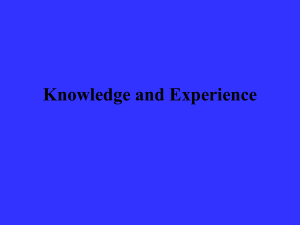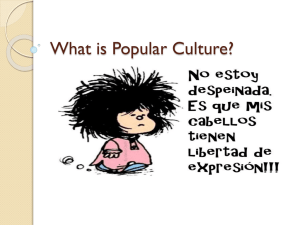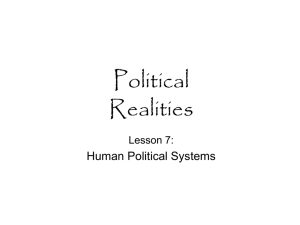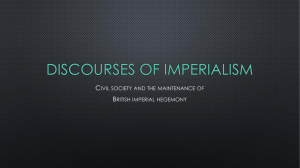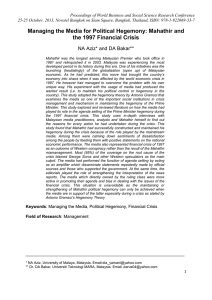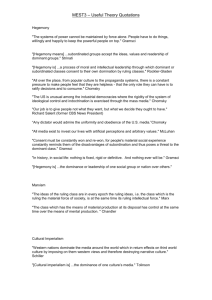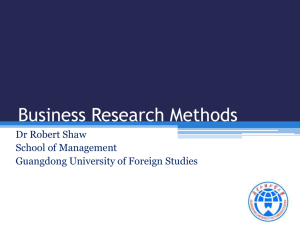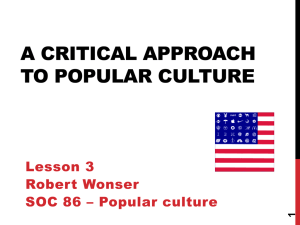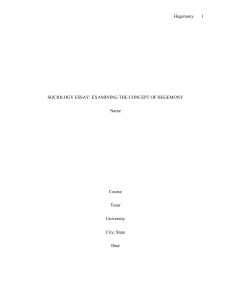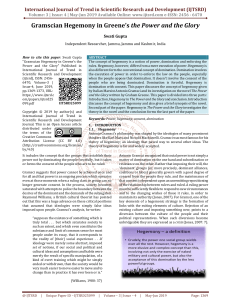Gramsci II Hegemony and Hegemonies
advertisement
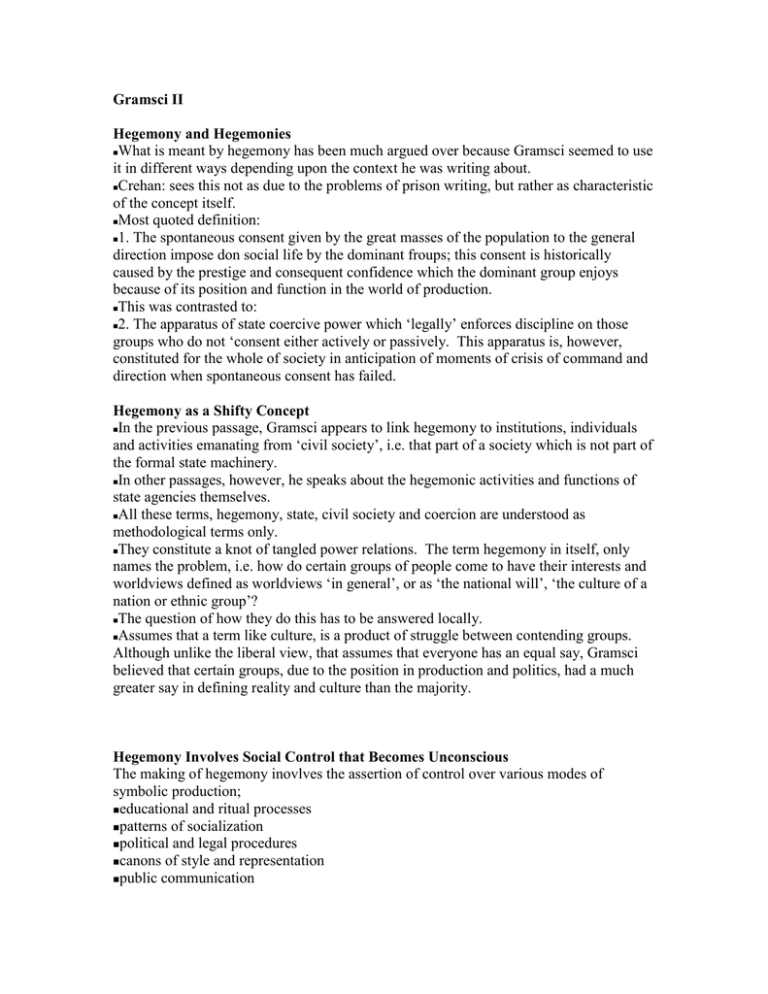
Gramsci II Hegemony and Hegemonies What is meant by hegemony has been much argued over because Gramsci seemed to use it in different ways depending upon the context he was writing about. Crehan: sees this not as due to the problems of prison writing, but rather as characteristic of the concept itself. Most quoted definition: 1. The spontaneous consent given by the great masses of the population to the general direction impose don social life by the dominant froups; this consent is historically caused by the prestige and consequent confidence which the dominant group enjoys because of its position and function in the world of production. This was contrasted to: 2. The apparatus of state coercive power which ‘legally’ enforces discipline on those groups who do not ‘consent either actively or passively. This apparatus is, however, constituted for the whole of society in anticipation of moments of crisis of command and direction when spontaneous consent has failed. Hegemony as a Shifty Concept In the previous passage, Gramsci appears to link hegemony to institutions, individuals and activities emanating from ‘civil society’, i.e. that part of a society which is not part of the formal state machinery. In other passages, however, he speaks about the hegemonic activities and functions of state agencies themselves. All these terms, hegemony, state, civil society and coercion are understood as methodological terms only. They constitute a knot of tangled power relations. The term hegemony in itself, only names the problem, i.e. how do certain groups of people come to have their interests and worldviews defined as worldviews ‘in general’, or as ‘the national will’, ‘the culture of a nation or ethnic group’? The question of how they do this has to be answered locally. Assumes that a term like culture, is a product of struggle between contending groups. Although unlike the liberal view, that assumes that everyone has an equal say, Gramsci believed that certain groups, due to the position in production and politics, had a much greater say in defining reality and culture than the majority. Hegemony Involves Social Control that Becomes Unconscious The making of hegemony inovlves the assertion of control over various modes of symbolic production; educational and ritual processes patterns of socialization political and legal procedures canons of style and representation public communication health and bodily discipline An Example: Christian Missionaries and the Tswana in Southern Africa Missionaries were in southern Africa for 80 years before state structures were in place. Yet many conversions to Christianity occurred among the Tswana during this period. How were they able to bring this about? Control over technology of irrigation and the symbolic politics associated with that. Water rituals and control over rain occupied a central place in Tswana rituals of kinship and kingship. The chief was thought to have control over rain-making; hence failure of the rains was thought to be symbolic of bad governance. The missionaries, however, had knowledge of wells and irrigation canals, and these were among the first technologies that they introduced there. Saw the Tswana rain rituals as ‘Satanic’, and planted gardens to show how much more control over water they had. Campaigned that this technology was god-given, i.e. given by the Christian god, and rewarded their converts with irrigated land. Debates over the rain-making powers of the Chiefs ensued, with the combination of technology and proselytization eventually winning many converts. Introduced an objectification of Tswana culture, as the Tswana engaged in this debate, the community became divided between ‘traditionalists’ and ‘modernizers’.
